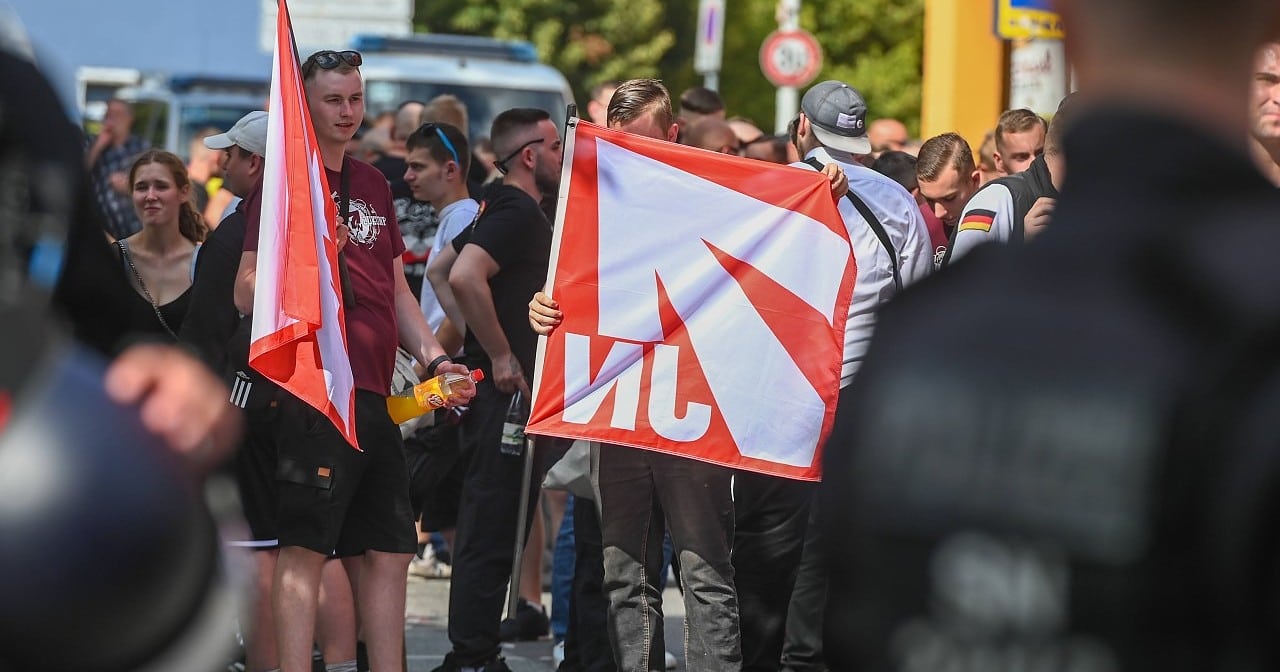The number of recorded right-wing extremist crimes committed by youths and young adults has risen sharply in recent years, according to a government response to a Greens’ parliamentary question that the German press agency has obtained.
According to the authorities, in 2020 about 3,200 right-wing extremist–motivated offenses were recorded among people up to age 24. Last year, the figure was more than 7,100—more than double. Most of these crimes were attributed to male teenagers between 14 and 17 years old (nearly 3,400).
According to the government, loosely organized groups are often appealing to young right-wing extremists. These groups can achieve rapid mobilization via messaging apps and social media, even without rigid forms, roles, or hierarchies.
Disruptions against Pride events
Several nationwide groups are named as active across the country, such as “Jung & Stark” or “Deutsche Jugend Voran.” In Berlin, Brandenburg, and Mecklenburg-Western Pomerania, police recently carried out a raid against members of “Deutsche Jugend Voran.” According to the Saxony-Anhalt Office for the Protection of the Constitution, these groups had appeared nationwide since last summer with calls for violence and disruption against Pride events. The federal government also labels “agitation against the LGBTQ+ community” as one of the current focal points. Youths are recruited by right-wing extremists through social networks, where promotional videos of demonstrations are regularly posted. Extremist influencers also play an important role.
But youth organizations linked to far-right parties such as “Die Heimat” (formerly NPD) or “Der III. Weg” have also found success online. The now-dissolved, nationwide and in several states designated as far-right by the intelligence services, youth wing of the AfD, Junge Alternative, is named by the government as another example.
Federal government “lacks a clear plan”
Green Party member of parliament Schahina Gambir, who helped file the inquiry with her colleague Marlene Schönberger, criticized that the government apparently does not take the danger seriously. “While the right professionalizes its strategies, tailors them to the spirit of the times, and thus speaks to young people in a targeted way, the government lacks a clear plan,” she told Spiegel (paywalled article). Instead, she said, funds for exit programs and prevention work are set to be cut. Schönberger described right-wing extremist youths and young adults as “a massive threat to our democracy.”
Indeed, the government plans to cut funding in the fight against right-wing extremism: the budget of the Federal Agency for Civic Education is reportedly to be slashed by more than two million euros around 2026. In other areas, spending is being increased: the total budget of the Interior Ministry is rising by 841 million euros.
